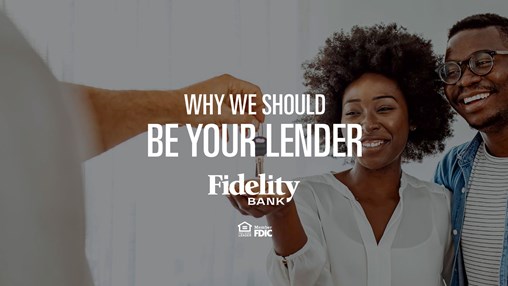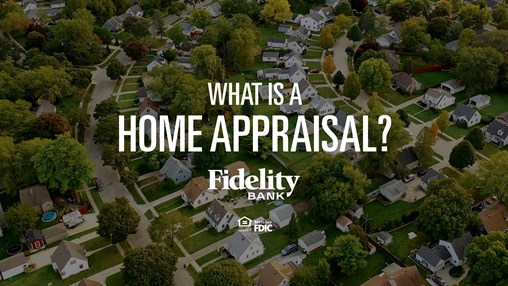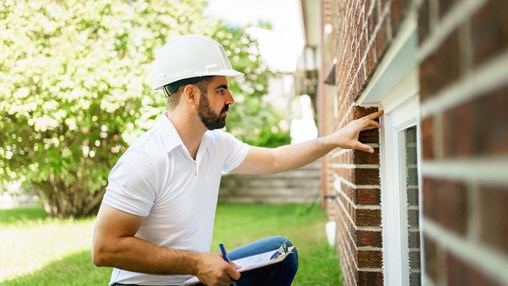HOME BUYING 101
HOME BUYING 101
6/7/2023What you need to know about getting a mortgage
At its most basic level, a mortgage is a loan used to buy many types of real estate, using the value of the property to serve as collateral for the loan. There are three types of properties that use mortgages to transfer ownership. Obviously, your primary home is the location you live most of the time, with your secondary home being a single-unit property used occasionally as a vacation home or a residence used for work on a regular basis. An investment property is used to generate income by allowing others to live there for short or long-term stays.
- Conventional Fixed-Rate Mortgages
- A popular option for homebuyers that prevents your interest rate from changing over the life of your loan. This arrangement provides homebuyers with peace of mind, knowing that their monthly principal and interest payments will not change.
- Adjustable-Rate Mortgages
- Adjustable-rate mortgages offer pre-determined interest rates for a set number of years at the start of the loan. The introductory rate can last up to ten years and is often lower than competing fixed-rate mortgages. After that period is over, your rate becomes variable for the remaining loan term.
- FHA Loans
- The Federal Housing Administration (FHA) issues government-backed loans with more lenient requirements that are ideal for buyers who are seeking lower down payment options, flexible income and credit requirements. FHA loans are only available for primary residence properties that meet strict minimum property standards.
- USDA Loans
- The United States Department of Agriculture (USDA) issues loans for low-income individuals in low-density, rural areas. These loans offer competitive rates that are often lower than conventional fixed-rate mortgages, without requiring down payments. This type of loan is only available in low-density (or rural) areas to borrowers with family income under the area median income limit.
- VA Loans
- The United States Veterans Administration (VA) backs loans for service members, veterans and eligible surviving spouses to build, buy, repair or retain a home for primary occupancy. These loans do not require down payments and offer competitively low interest rates with limited closing costs.
- Jumbo Loans
- A Jumbo Loan is used for homes that exceed the limit for a conforming loan, as determined by the Federal Housing Finance Agency.
Fannie Mae and Freddie Mac
Fannie Mae and Freddie Mac are two government-backed entities that are used to keep the national mortgage market operating smoothly by buying mortgages from lenders to hold or to package into securities that are sold on the open mortgage market. The sale of these loans helps lenders fund additional loans, restarting the process once more and fueling the national economy.
Fannie Mae is actually the nickname for the Federal National Mortgage Association, charged mostly with buying loans from large banks and credit unions, while Freddie Mac is formally known as the Federal Home Loan Mortgage Corporation and typically buys loans from smaller banks and credit unions, although there is some crossover between the customers of each organization.
How mortgage rates are determined
Generally speaking, mortgage rates are determined by the state of the overall economy. A positive economic outlook tends to raise interest rates, while a negative economic climate often drops mortgage rates. While this seems counter-intuitive, the reasoning is due to the idea that a positive economic outlook means borrowers can afford more. A down economy suggests that borrowers must be enticed to take out loans with lower rates.
As a borrower, there are several things under your control that affect the rate a mortgage lender may offer you. Your credit score, the amount of down payment you’ve saved and your loan-to-value ratio can all play a role in the final offer you receive.
- Credit Score: Your credit score is one of the most influential factors in determining the mortgage rate you will receive. The higher your credit score, the less risky your loan will appear to be, giving you the best chance to receive a loan offer with a mortgage rate closer to the advertised rates. A lower score represents a greater risk to lenders. For access to the best rates, be sure to pay your bills on time and do not over-extend your credit.
- Down Payments: A down payment is a cash payment that pre-pays some of the mortgage loan up-front. To a lender, it represents your investment in home ownership and can be seen as a show of faith in your intention to repay the loan. Depending on the type of loan, a down payment of less than 20% may increase the mortgage rate you are offered and require you to pay mortgage insurance.
- Loan-to-Value Ratio: A loan-to-value ratio is a comparison of the amount of the loan to the value of the home being purchased. With a higher down payment, the loan-to-value ratio will be lower. For example, if you have a 3% down payment on a $200,000 loan, you have invested only $6,000. A 20% down payment equals a $40,000 investment of your own money, up front, to receive your home mortgage—a sign of commitment that is likely rewarded by lenders with a lower mortgage rate.
Getting prequalified and applying for a mortgage
Qualifying for a mortgage loan is a complex process that weighs external factors such as the national economy with your personal financial history to determine the terms of mortgage offers you may receive. At the beginning of your homebuying journey, it is recommended that you go through a “pre-qualification” exercise to estimate the range of mortgage offers you are likely to receive, allowing you to estimate your homebuying budget before undergoing the formal application process. With this information, you can identify areas of opportunity that may increase your chances of receiving the most favorable mortgage rate terms. For your convenience, you can use our easy online application process for both pre-qualification and mortgage application.
Once you’re ready to purchase a home, you’ll want to research and engage several lenders before choosing the one that best matches your personal needs. Our mortgage customers may be asked to provide items from this list of documents to complete their loan application:
- Driver’s license(s)
- Social Security card(s)
- Last two years of W-2s
- Last 30 days of paycheck stubs
- Last two months of bank statements for all accounts
- Current monthly statements for all investment accounts such as 401Ks and IRAs
- All open loans, credit cards and mortgage loans, among other debts, with account numbers, balances and monthly payments
- If self-employed, provide a year-to-date profit and loss statement and complete business and personal tax returns
- If divorced, a copy of the divorce decree, including the property settlement section
- If bankruptcy has been filed in the last seven years, copies of all bankruptcy court documents
- A check to pay the application fee once you have submitted a full application and given your consent to continue the loan process
- Purchase contract signed by all parties
Once you’ve compiled all the requested documents, begin the online application process by clicking the link below.
Getting a bigger loan
Once your loan application has been processed and returned, you may be unsatisfied with the amount on offer. Bear in mind, a responsible lender’s goal is to provide you with a mortgage that you can afford. That being said, if you need a bigger loan to afford the house of your dreams, you’ll need to work on your finances, specifically, your credit score. It’s the most influential factor that determines the quality of offers you receive. Because it functions as a review of your financial past, it takes time for your credit score to reflect your newly improved behaviors.
Inpections and appraisals
Once the home seller has accepted your offer and depending on the home and loan type, you’ll need to conduct a formal appraisal, and possibly other inspections, to determine the property’s fair market value. This process is designed to prevent you from overpaying for a house that is worth less than its sale price. During the process, the living condition of the home, the value of nearby properties, and any home improvement projects will be considered when determining the home’s value. As the buyer, you are responsible for covering the cost of the home appraisal, which can be anywhere from $500 to $750, depending on the property.
Private mortgage insurance (PMI)
To protect their investment, lenders typically require home buyers who make a down payment of less than 20 percent to purchase mortgage insurance. Private mortgage insurance covers the lender if the buyer falls behind on payments. This is different from homeowners or hazard insurance which protects you from damage to your home.
Closing costs
While both the buyer and seller pay closing costs, the buyer can expect to pay a greater share. These fees are negotiable as part of a seller’s concessions, but there are limits to the amounts sellers can offer to pay from the borrower’s portion, depending on the type of loan.
Ready to get started?
Contact one of our experienced lenders today. They stand ready to help you understand the home loan options available to you and empower you make the best decision for your situation.
Additional reading
Calculators


